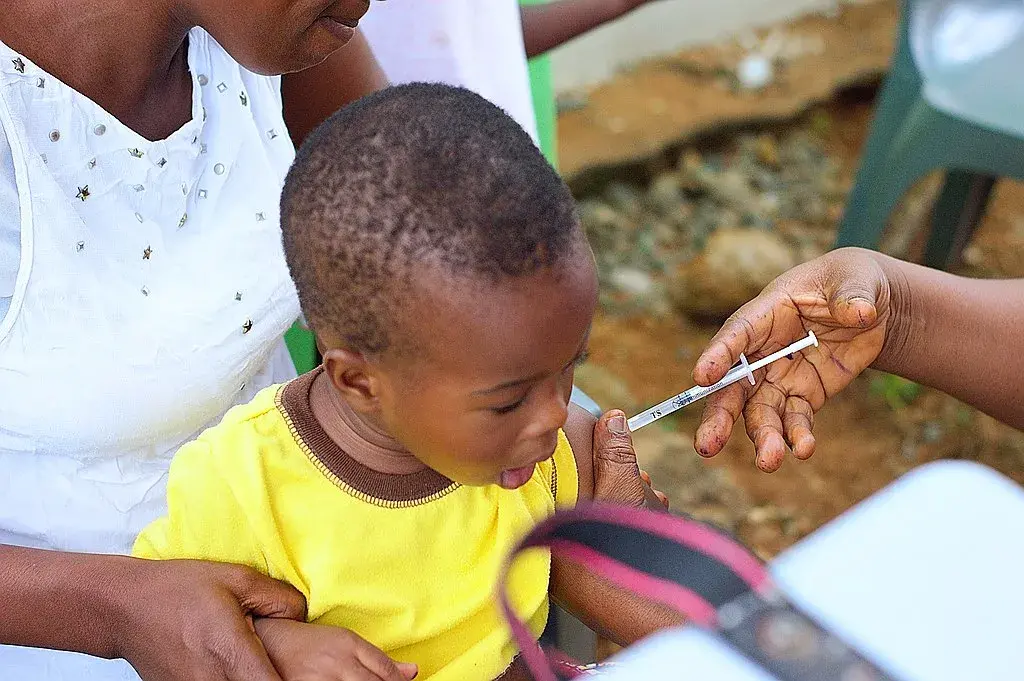Most of the victims of malaria in Africa are children below the age of five.

Cameroon has launched the world’s first regular immunisation programme against malaria, which is expected to save the lives of thousands of African children. A baby girl called Daniella received the first symbolic shot at a health centre near Yaoundé on Monday.
Malaria kills 600,000 people in Africa every year, the World Health Organization (WHO) says, and most of the victims are children under five.
The RTS,S vaccine is free for all infants up to six months old in Cameroon. They need four doses in total. Health workers say they will administer them along with other standard childhood vaccines to make it convenient for parents.
The launch follows successful trials in Kenya, Ghana and Malawi – where Unicef says the vaccine reduced malaria deaths by 13% among children of eligible age.
US researchers say the jab can prevent at least 36% of infections, which means it could save more than one in three lives. However, the vaccine is not a “silver bullet”, says Willis Akhwale from End Malaria Council Kenya, because of its relatively low efficacy rate.
But for doctors it is a valuable extra weapon in the battle against malaria, together with mosquito nets and anti-malarial drugs. A UK-led study suggests that combining all three could protect children from 90% of malaria cases.
“We have the ability to significantly lower the number of cases and deaths from malaria and speed up the eradication of the disease,” Cameroonian doctor Shalom Ndoula, who helped to oversee the vaccine rollout in his country, told BBC Newsday.
The British pharmaceutical company GSK developed the RTS,S vaccine after 30 years of research. The WHO, which approved the vaccine, praised the launch in Cameroon as a historic milestone in the global fight against the disease transmitted by mosquitoes.
Another achievement came earlier this month, when the WHO officially declared Cape Verde the first sub-Saharan African country in 50 years to be free of malaria.
Some Cameroonians have expressed fear and doubt about the safety and effectiveness of the vaccine, raising worries about vaccine hesitancy.
“That’s not really true when people say we are being used as guinea pigs,” Wilfred Fon Mbacham, who is both a Cameroonian king and a professor of public health biotechnology specialising in malaria, told BBC Newsday. “We as scientists have to do a lot more to educate the public on what it is, and the benefits it has, so that we can ease their fears.”
In 2021, Africa had 95% of malaria cases globally and about 96% of related deaths. The WHO says Cameroon has about six million malaria cases every year, with 4,000 deaths in health facilities – most of them children below five.
Children aged six months in 42 districts with the highest rates of illness and death will get four doses until they are two years old.
Twenty other countries plan to roll out the programme this year, according to the global vaccine alliance, Gavi. They include Burkina Faso, Liberia, Niger and Sierra Leone.
There is already a huge demand for doses, but only about 18 million are available for distribution before 2025, according to Gavi.







